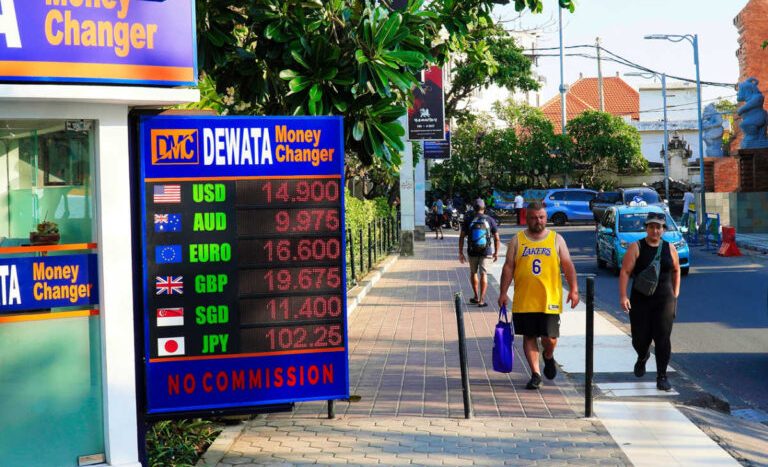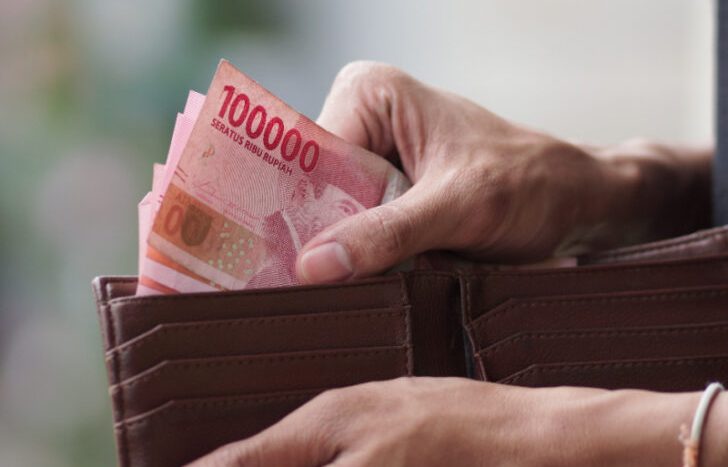Bali Tourist Money Scam
Bali Tourist Money Scam
Bali Tourists Warned Of Common & Easy To Fall For Money Scam
It’s that time of year again. With high season in Bali about to get started, it’s time for all the travel scams to start coming to light again.
Seasoned Bali tourists, you already know what we’re going to be talking about, but for newbies, listen up. There is one money scam in Bali that feels as if it’s been around since the dawn of time, but since travelers keep getting caught out by it, we’re going to keep reporting on it.
That being said, this particular scam appears to be declining. This is in part because more and more tourists are traveling using international travel cards, and more and more of Bali’s leading attractions, cafes, restaurants, and shops accept debit and credit cards.
Nevertheless, cash is still king in Bali, and it’s always good to have some notes with you, especially if you’re exploring away from the big resort areas like Canggu, Uluwatu, Seminyak, and Ubud.
In theory using a currency exchange facility in Bali should be safe, convenient and offer a fair exchange rate.
What makes this Bali money scam so surreptitious is that at face value, everything looks above board.
The scam involves a slight-of-hand mavaoeur who can steal hundreds of dollars from tourists’ currency exchange transactions.
The scam goes something like this: A tourist walks into a currency exchange shopfront or kiosk. The teller and tourist agree on the exchange rate, and the teller counts out the amount in the original currency to make sure everyone is on the same page about how much is being exchanged.
The teller then brings out the Indonesian Rupiah notes and counts out the amount agreed upon with the tourist. Sometimes, they count the notes out several times before reassembling them and handing them over to the tourist. Just as they gather the notes together, the teller will use a sleight of hand to drop some of the notes down behind the desk or screen.
To the tourist’s eye, all that’s happened is that the notes have been reorganized into a pile, but in reality, as many notes as possible have been swiped away behind the desk for the teller to keep.
This scam has been happening in Bali and in many other tourist destinations all around the world for decades.
Over the years, the tellers have become super good at swiping the notes away without tourists’ notice. In fact, in some cases where tourists have filmed the interactions, it’s still nearly impossible to tell what’s happened even when the video is played back in slow motion.
Several safeguards can be implemented by tourists to keep them safe from scammers.
The first is to only exchange currency in a certified and reputable facility, such as a bank, at the currency exchange counter of a resort hotel or at any of the exchange facilities at Bali’s I Gusti Ngurah Rai International Airport on arrival though the outlets at the airport typically have a higher exchange rate than those outside the airport.
The second is to take some time to familiarize yourself with the Indonesian Rupiah notes. It’s especially easy for first-time tourists to Indonesia to get confused by the new numerical denominations and note colors.
The final safeguard is the most essential: count the notes handed over by the teller at least twice before walking away from the desk or signing the exchange invoice.
While some tourists feel awkward doing this, as it may appear distrusting of the teller, those who are running legal and legitimate currency exchange facilities will not be offended, and in many cases will encourage tourists to do so.
Bali Tourism Quality
Bali is in a longstanding tug-of-war between wanting to grow its tourism sector, attract ever more international tourists, and maintain a high quality of service and experiences while prioritizing cultural respect and sustainability.
In a meeting of minds, leaders from all of Bali’s biggest tourism associations have committed to developing more high-quality tourism for the island’s travelers and holidaymakers.
The Regent of Badung, Wayan Adi Arnawa, who oversees Bali’s biggest tourism resorts like Canggu, Uluwatu, Jimbaran, Kuta, Legian, Seminyak, and Nusa Dua, has held a meeting with the leaders of the province’s biggest tourism associations.
During the meeting, Regent Arnawa emphasized that the Badung Regency Government is committed to building high-quality, sustainable tourism rooted in local Balinese wisdom and bolstered by strengthening cross-sector collaborations.
Regent Arnawa shared “Tourism that is developed must be in line with the values of Nangun Sat Kerthi Loka Bali, as a foundation for maintaining harmony between humans, nature, and culture.”
Nangun Sat Kerthi Loka Bali, is a Balinese philosophy introduced into the political sphere by Governor of Bali Wyaan Koster. It is a philosophy focused on sustainable development, inspired by traditional Balinese values.
Broken down into its elemental parts. Nangun means to build or maintain, Sat Kerti refers to the six sacred sources of well-being in Balinese culture, and Loka Bali means ‘the world of Bali’. The six elements of well-being in Balinese culture may be familiar to travelers who have already visited the island.
Many of these elements are featured in the design of hotels and accommodations, spa menus, restaurants, and, of course, the island’s cultural attractions and natural landscapes.
Each ‘kerthi’ or element represents an aspect of life that must be tended to with care and diligence in order for the overall well-being of each person, community and landscape to be achieved.
Atma Kerthi is all about sanctifying the soul through spiritual practice, Segara Kerthi focuses on preserving the sanctity and cleanliness of the sea, and Danu Kerthi is dedicated to protecting lakes, rivers, and water sources.
Wana Kerthi is the fourth aspect, which focuses on conserving forests and natural environments. Jana Kerthi is oriented on enhancing the quality and dignity of human life. Finally, Jagat Kerthi is defined by all efforts to maintain the harmony of the world and the universe.
For tourists visiting Bali, these elements make for a spiritually inspiring, restful, rejuvenating, connected, and meaningful travel experience.
Many tourism leaders are concerned, however, that with the rapid growth of the tourism sector and further shifts towards mass tourism, even in some areas of the island overtures, these philosophies will be overlooked, and a poorer-quality tourism sector could emerge.
During the meeting, Regent Arnawa was open about the issues faced by Badung Regency’s biggest tourism resorts and the impacts these shortcomings have on tourists, local communities, and the environment.
He cited traffic congestion, pressure on environmental carrying capacity, waste management, broken sidewalks, and dangerous overhead cables as issues that need to be urgently resolved.
Regent Arnawa is committed to developing and implementing policies that will help solve these long-standing problems in the area. This will make Bali’s biggest tourism resorts safer and more comfortable for tourists, who will then be able to connect more deeply with Balinese culture and the landscape.
He noted “All of these policies are part of a long-term strategy to realize tourism that is oriented towards quality, not just quantity. For that, a joint commitment is needed to strengthen the synergy between local governments, tourism associations, and all elements of society.”
Add Your Heading Text Here
Bali Police Call For Cooperation With Nightlife Venues To Deal With Drunken Tourists
Police in Bali have spoken out about the ‘brutal’ behavior of some tourists on the island. As the high season approaches, Bali’s tourism sector is preparing to welcome hundreds of thousands more tourists eager to have fun in the sun.
Some, however, take things too far, and on all too many occasions, tourists enjoying a few laid-back sunset beers can quickly descend into drunken disorder.
The Head of Public Relations for Badung Police, Inspector Putu Sukarma, has spoken to reporters about the types of incidents officers are called out to in Bali’s leading nightlife areas. Inspector Sukarma told reporters that reports include fighting, drunken disorder, and driving recklessly, including under the influence of alcohol.
He confirmed that Badung Police will continue to collaborate with nightlife venues in the area to monitor the behavior of tourists. He has called for nightlife venue teams to immediately call the police at the first sign of drunk or disorderly behavior from now on.
Inspector Sukarma explained how teams will be deployed across the area to be best positioned to respond rapidly to reports of drunken tourists this high season and beyond. He noted, “The Badung Police Team, namely our patrol units, are collaborating with related agencies to conduct patrols.”
Badung Police teams oversee nightlife venues in Bali’s busiest tourism resorts, including Canggu, Uluwatu, Kuta, Legian, Seminyak, Nusa Dua, and Jimbaran. Inspector Sukarma called for the public, tourists, and nightlife teams to support the collective effort to increase security and public safety in the area. He concluded, “so that we can anticipate what actions can be taken so that the disturbance and so on can be minimized.”
Inspector Sukarma’s comments come after reports hit headlines locally of an alleged assault by a foreign tourist against a female member of staff at Red Ruby nightclub in Seminyak. The incident is being investigated by Bali Police and has been the subject of much speculation across Bali-based social media accounts and forums.
Tourists heading to Bali this high season are urged to party responsibly. As security teams on the islands are strengthening ties with local police, and as local police are increasing patrols in busy resort areas, tourists can expect to see more security presence at nightlife venues and for officers to be even quicker to respond to potential disorder.
Leaders in Bali have been vocal about their commitment to a zero-tolerance approach to cultural disrespect and illegal behavior by foreigners visiting the island.
Whether it be immigration violations, theft, illegal driving, drunken behavior, fighting or engaging in scams, or out-and-out criminal activity, Bali is on a mission to ensure that public order is maintained and criminally inclined tourists are kept at bay.
In fact, Bali’s Governor Wayan Koster has said that he wants authorities to show ‘no mercy’ to tourists found to be flouting the rules.
In statements issued earlier this month after an American tourist went on a drug-induced rampage in a local medical clinic, Governor Koster announced “[this is] momentum for me as Governor to take firm and tough action against foreign tourists who behave badly while in Bali Province.”
“So there is no mercy and we hope that the deportation carried out will be a lesson and a warning to all foreign tourists visiting Bali to obey the law, and respect Balinese culture and local wisdom.”
Tourists visiting Bali are also advised to be extremely cautious about consuming alcohol on the island, not only for its impact on behavior but also for health.
Methanol poisoning is a serious risk in Bali, as the Australian travel bureau, Smarttraveller, has even launched an awareness campaign to help inform tourists heading to top travel destinations in Southeast Asia, including Bali, about the potentially fatal implications of consuming drinks tainted with methanol.
Smarttraveler explains “As little as one shot of methanol can be fatal. Labels on bottles aren’t always accurate. Be suspicious of unusually cheap drinks claiming to use branded spirits, they may be counterfeit.”
The travel advice board shared “The symptoms of methanol poisoning can vary. If you or a friend have symptoms or just don’t feel right, get medical help immediately. Urgent medical care could save your life.”
Main Article: Bali Tourist Money Scam
Looking for a nice piece of land to purchase in North Bali?
Please contact us for more information on North Bali Properties.













